‘Rats as big as cats’ in Birmingham now that the garbage stays on the street
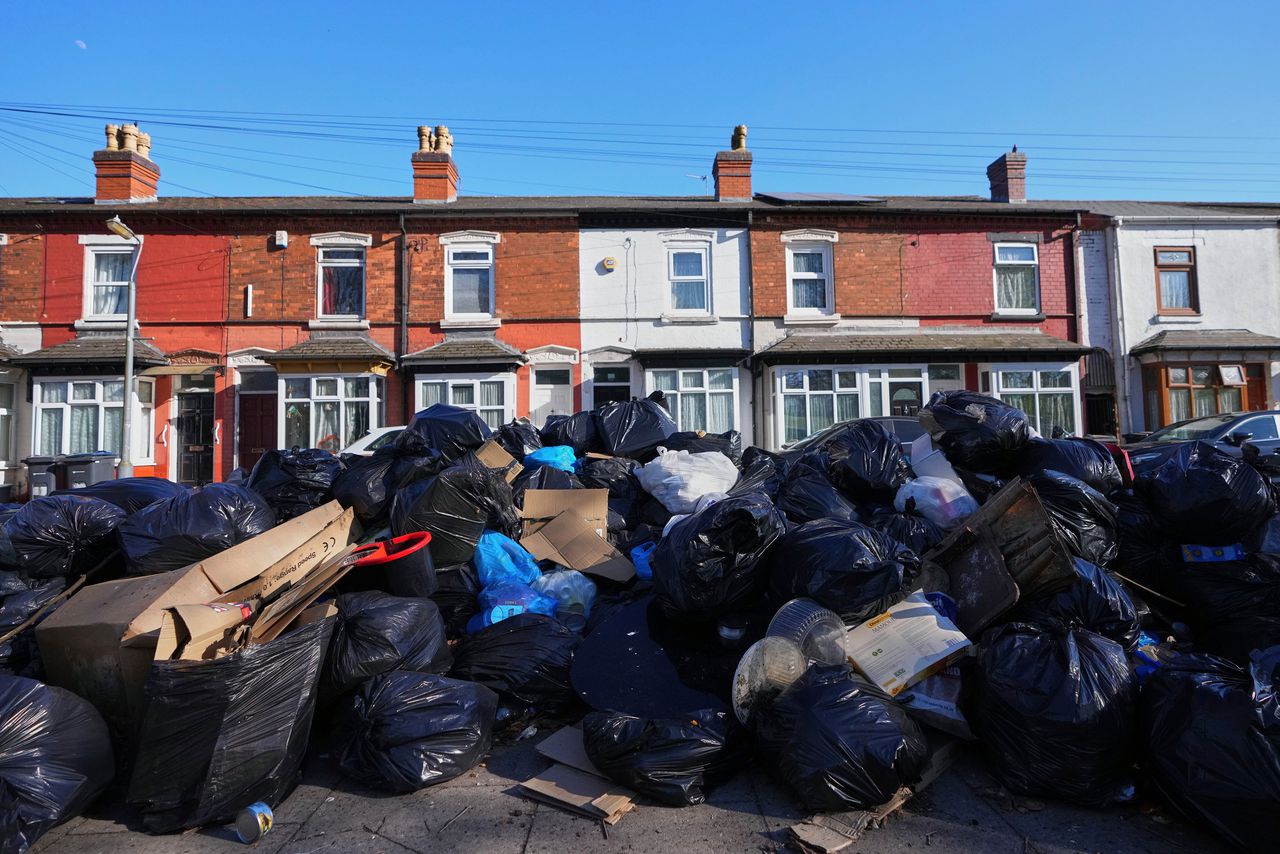
Her children like to play outside in the hofje between the houses, but that is not possible for weeks. Kish War points to a stack of garbage bags right next to the entrance, near the fence. « I often see mice. And sometimes there are injection needles among the waste, especially unsafe for the children. » Some bags are torn open. There are pizza boxes, paint cans and diapers.
Kish War, on slippers, with glasses and a black headscarf, lives in Small Heath, just outside the center of Birmingham and one of the poorest neighborhoods in the city. She doesn’t know why the garbage collectors stopped. She only sees the consequences. She and the neighbors have already complained to the municipality a few times, but that makes little sense. « Last week they came to pick up everything. But a day later someone throws one bag down and then it starts from the front. »
In Birmingham, the second city in England, hundreds of garbage collectors have now laid their work for more than a month. And this is not a normal collective labor agreement conflict where employees demand more salary. The municipality wants to rule them again and for some garbage collectors that would amount to an income drop of around 8,000 pounds (around 9,650 euros) per year. On Monday, the members of the most important union vote on an offer from the municipality. The expectation is that they will reject the bid.
Financial problems
Garbage man Adrian Markley is just coming around and has no idea how that should be if he would get 8,000 pounds less salary. After all the fixed costs and groceries, he and his wife have around 30 pounds every month. Once by taxi to the hospital for his wife – she has difficulty walking and cannot work – and they are through those few tens. Earning less would mean that they have to move, he says. But where? « We already live in a cheap part of the city. I wouldn’t know. »
Markley has been working ‘on the car’ for more than twenty years and sees this strike as a necessary evil. With a few dozen employees, he protests daily against one of the major waste processing points of the city. « Undervalued and under fire, » says a banner. Of course he is dear to him how nasty many streets are. « Our waste at home is also not collected. But this is the only way to have the city council listen. »
The city of Birmingham has great financial difficulties and that is a problem for more municipalities in England. In recent years they have received less and less money from the national government. On average, municipalities now have 11 percent less to spend than in 2010. According to the British Court of Auditors, about half of the municipalities can get in such a way that they go bankrupt.
This happens wherever they cut. The enforcement of illegal dumping of waste has also been almost completely cut back
Birmingham already declared itself practically bankrupt in 2023. The city then received a setback of 760 million pounds, after a lawsuit showed that women have been paid less for years at the municipality than men in the same position. To get the finances around, the municipality fired hundreds of employees. Local taxes rose by 10 percent last year and this year by another 7.5 percent. There is a lot of cuts on facilities for residents, such as social work, youth assistance and maintenance of roads. And because some garbage collectors also earn more than colleagues with similar work, the municipality now wants to lower their salaries, for fear of new lawsuits.
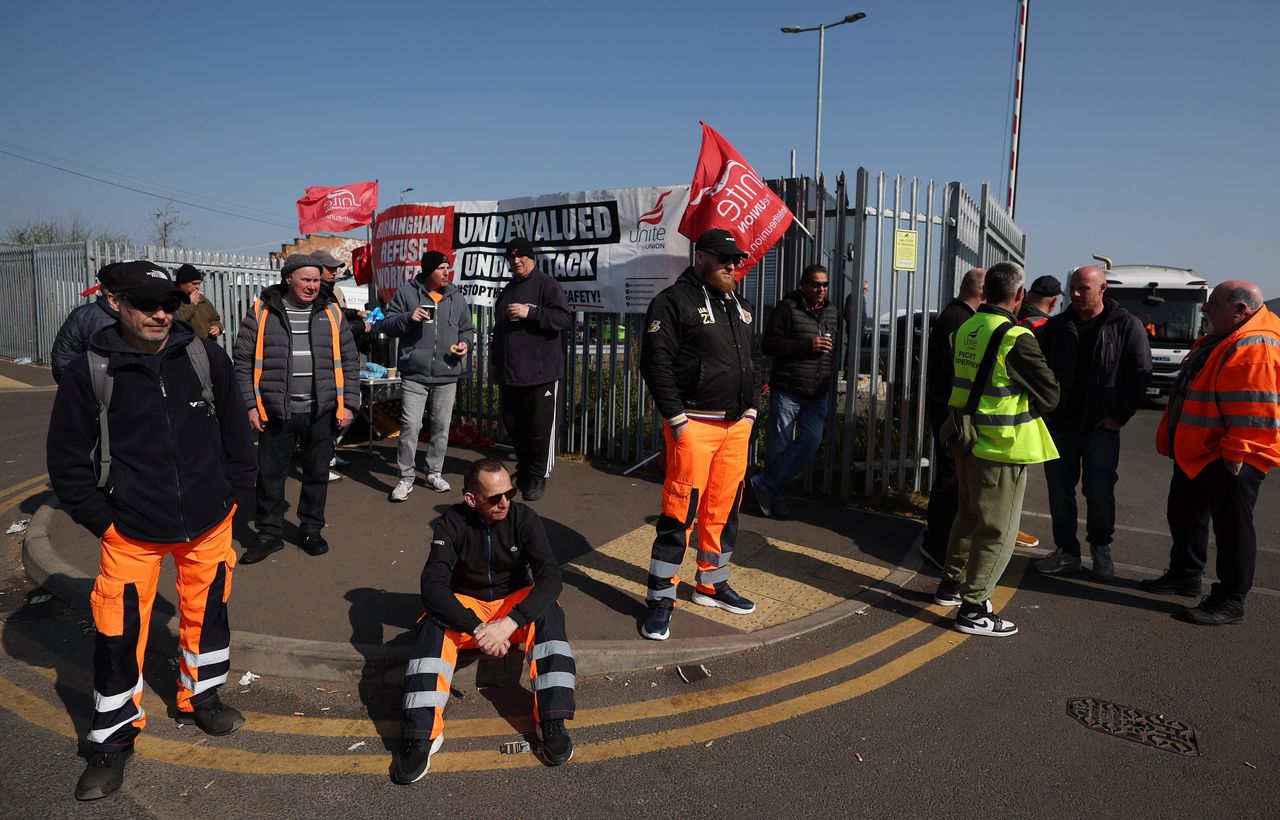
Those problems regarding equal payment also play elsewhere, wrote The Times Last week. In at least 25 other cities, including Leeds, Brighton and Sheffield, unions of lawsuits have started on unequal salaries. « If you want to know where the future strikes are taking place, see where things play for equal rewards, » an anonymous source of government told the newspaper. The equalization of functions and salaries will lead to resistance for those who are deteriorating.
Private businesses
In Birmingham the strike makes the great socio-economic inequality extra visible. In a poorer neighborhood like Small Heath, Klikos are stuffed and with open valves on the road, hoping that a garbage truck will come by. Garbage bins next to benches in the park walk over. Rotting food residues on the ground have been pounded black and a weeïge air is rising. Pest fighters are doing good business and the wildest stories are about the Ratten population. They would be as big as cats or small monkeys.
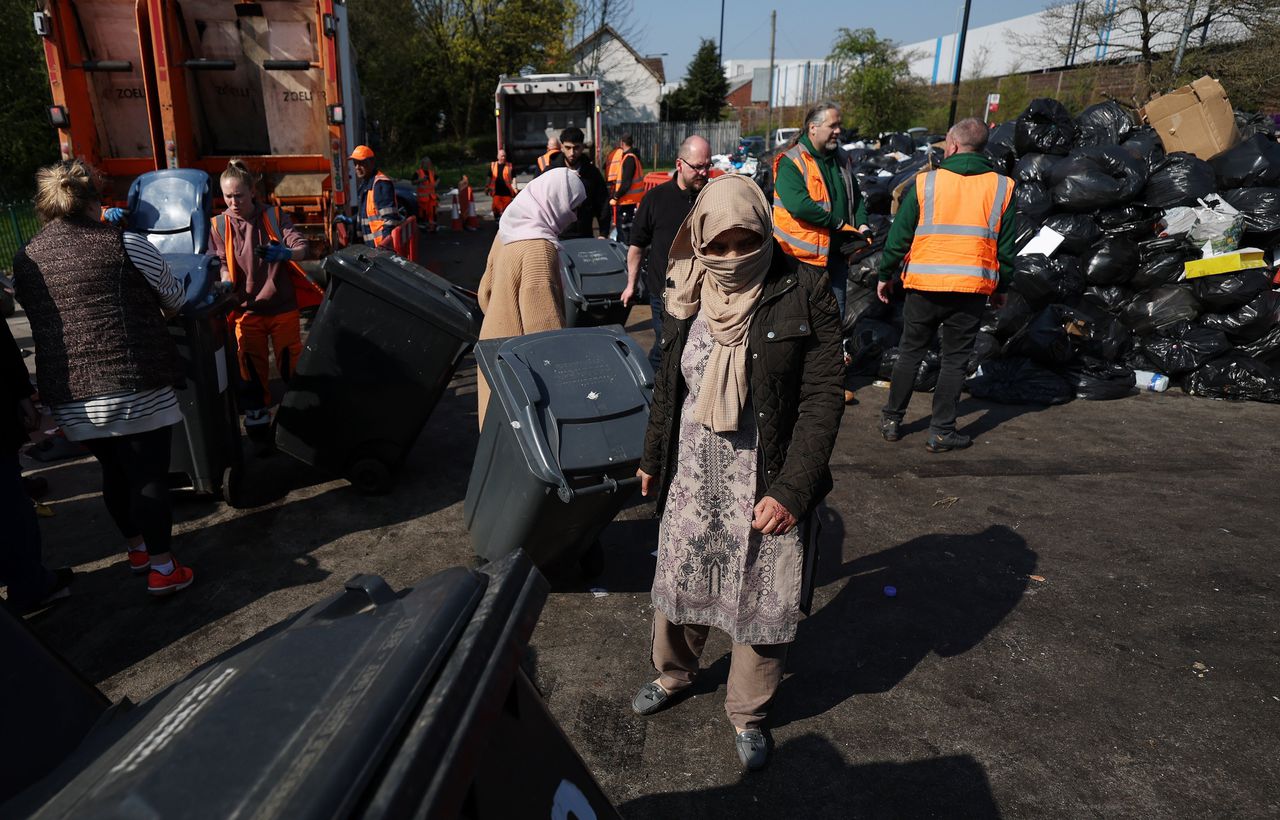
Photo Andy Rain/EPA
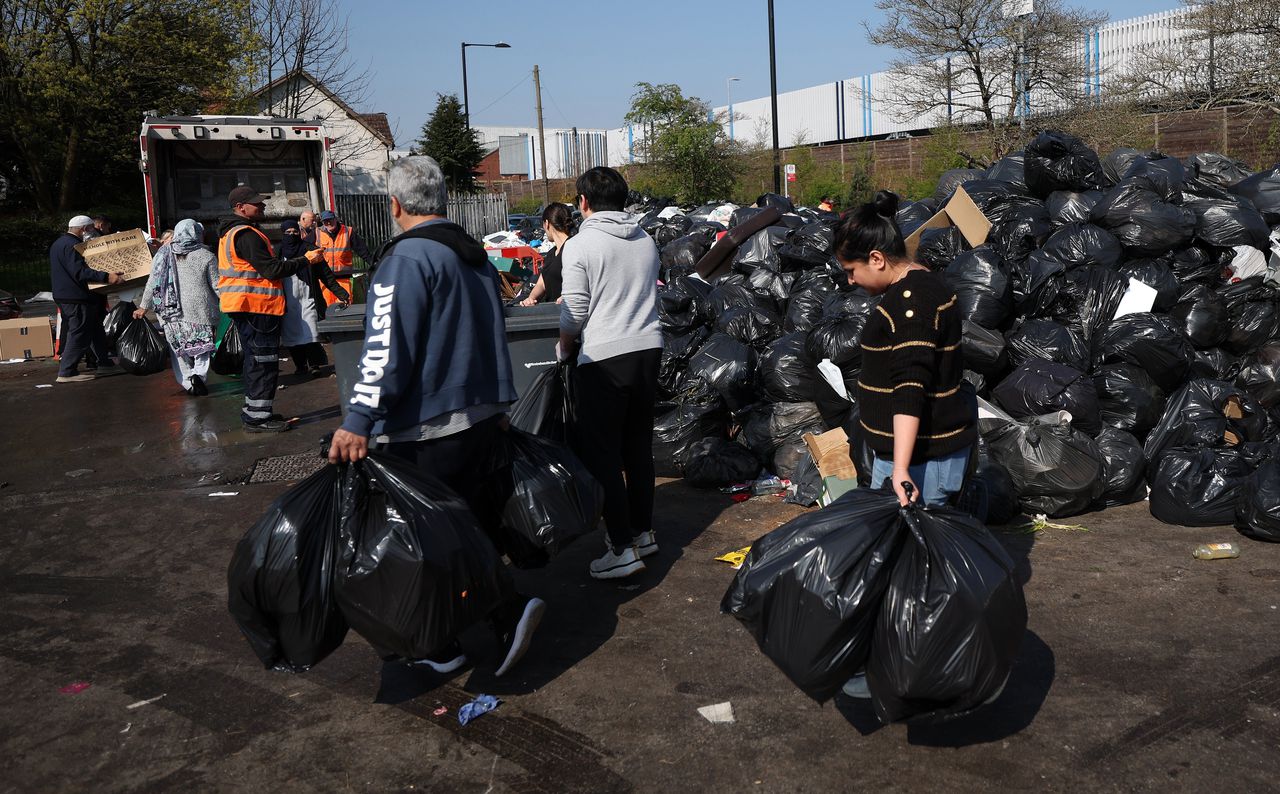
Photo Andy Rain/EPA
There is almost no waste on the street in richer neighborhoods. Here residents have a car to bring their garbage bags to the dump themselves. Or they pay private companies to empty their containers. The municipality tries to eliminate the tons of garbage with temporary workers and mobile waste points. They are also easier to reach for residents with a car.
On a square in the east of the city there are two garbage trucks, one for loose pockets and one to empty containers in empty. Residents come to bring waste in their cars. Some have their entire underhanded full, others hold one waste bag on their lap. A neighbor walks back and forth with a wheelbarrow full of garbage bags, Klikos rattle over the sidewalk.
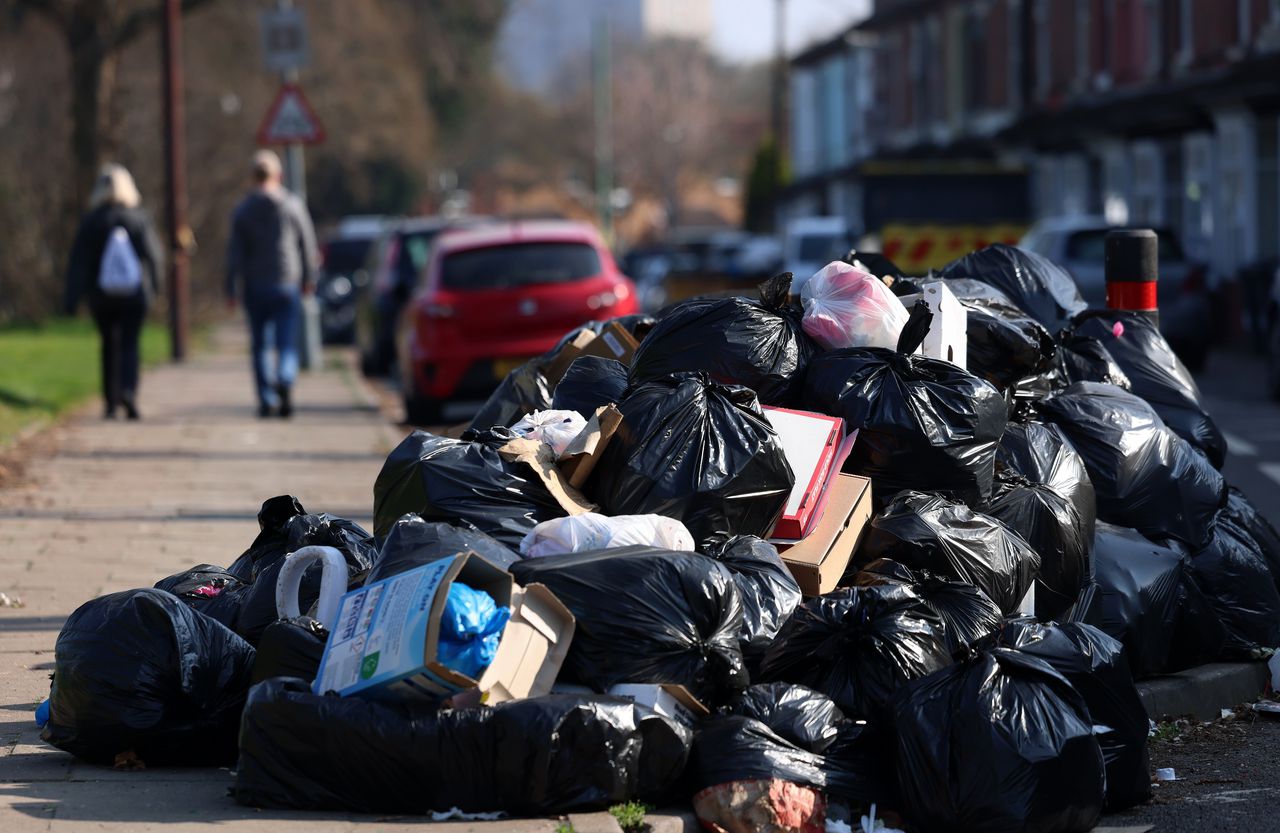
Norman Shayler, in a black Lonsdale-Vest, comes to release two bags. He sees the strike as a symptom of a national problem: « This happens everywhere they spend. The enforcement of illegal dumping of waste has almost been completely cut back. » Initially, most inhabitants had sympathy for the garbage collectors, says Shayler, but after more than a month it drops, he says: « They see the mess growing on the street and thinking, come on, go back to work. »

:format(webp)/s3/static.nrc.nl/images/gn4/stripped/data132512191-bf7b93.jpg)
:format(webp)/s3/static.nrc.nl/wp-content/uploads/2025/05/19171644/data132518834-9ea30f.jpg)
:format(webp)/s3/static.nrc.nl/wp-content/uploads/2025/01/11191751/web-1101BIN_XR.jpg)




